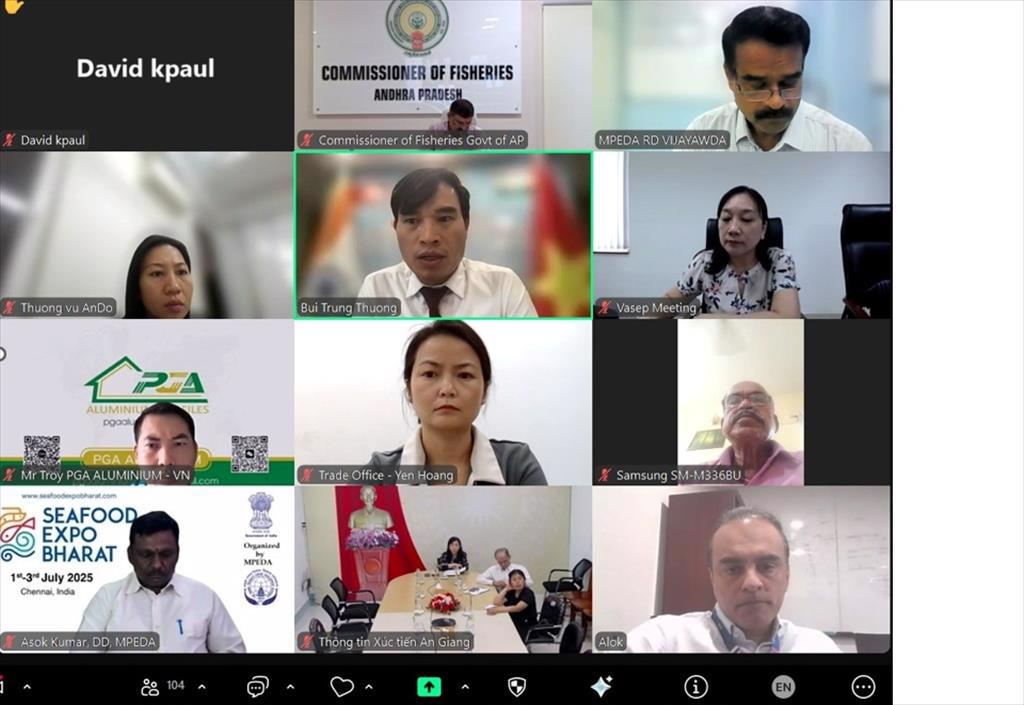(seafood.vasep.com.vn) On the afternoon of May 28, the Vietnam Trade Office in India, in coordination with relevant agencies, held an online seminar on the theme: “Vietnam-India Cooperation in the Fisheries Sector.”
The seminar was attended by nearly 50 Vietnamese enterprises operating in various fisheries fields and 100 companies from India, representing many stages and products across the fisheries industry.
At the seminar, Mr. Pawan Kumar, President of the Seafood Exporters Association of India (SEAI), proposed three methods to strengthen cooperation between Vietnamese businesses and SEAI, aiming to help both parties tap into great potential and expand markets more effectively on a global scale.
Specifically, both sides will participate in each other’s specialized trade fairs and exhibitions to promote exchanges, product showcasing, and establish partnerships; organize an annual Asian export fair rotating among major exporting countries in the region such as Vietnam, India, and Thailand; form a Strategic Group to share common information to identify growth opportunities, optimize supply chains, and exchange market data. Mr. Kumar affirmed that SEAI would support and facilitate the implementation of these initiatives to the fullest extent.

Mr. Rama Sankar Naik, Director of the Fisheries Department of Andhra Pradesh state government, highlighted cooperation opportunities between businesses of the two countries, such as sharing advanced aquaculture techniques and processing technologies; joint ventures and exports; collaboration in developing affordable cold chain solutions; cooperative research and development in disease management, feed sustainability, and water quality; exchange training and linkage to enhance human resource capacity.
On the Vietnamese side, enterprises also presented their strengths to attract investment from India and announced export demands to this vast South Asian market.
Ms. Tran Thuy Que Phuong, Deputy General Secretary of VASEP, emphasized Vietnam’s fisheries industry strengths, including: government support; favorable natural conditions; large, stable, and safe seafood supply; the leading role of private enterprises; internationally recognized seafood quality; tariff advantages in many markets through free trade agreements (FTAs); and a high-quality, experienced workforce. Additionally, she pointed out challenges faced by the Vietnamese fisheries sector such as increasingly strict market barriers and regulations; IUU fishing regulations; climate change and diseases; and new U.S. tariff policies.
Strengthening bilateral cooperation between India’s SEAI and Vietnam’s VASEP, as well as between enterprises from both countries, is considered strategic to enhance competitiveness, develop processing technology, ensure international quality standards, and diversify export markets.